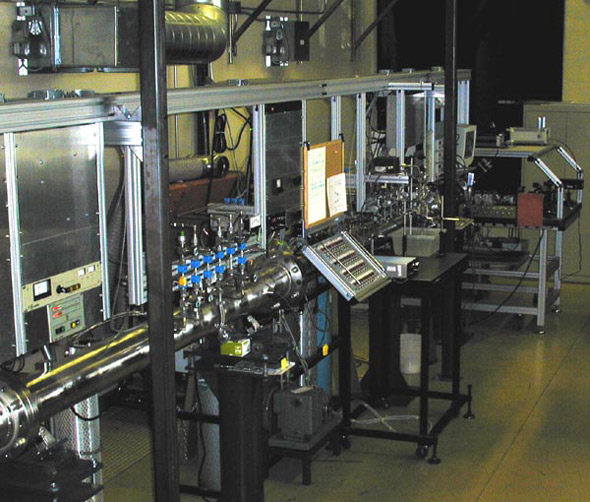| While the shock tubes provide the test conditions (i.e. elevated temperature and pressure) of the experiments, the actual species concentrations that change during the chemical reactions are monitored using laser absorption. We take advantage of the fact that each individual chemical species has a unique spectroscopic signature. We are thus able to probe different species using different wavelengths of light, generated by different lasers. For example, to detect the transient species OH, the hydroxyl radical, which is formed when H-atoms react with the oxygen (O2) in air, we measure the absorption of a laser beam with a wavelength of 306 nm as it passes through the reacting test gas mixture. Similarly, the combustion product H2O is detected by monitoring the absorption of IR laser beam with a wavelength of 2.7 microns. Using the measured concentration time-histories of several critical species, a complete picture can be formed of the chemical reactions involved when a fuel burns. Our goal is to develop and refine the detailed reaction mechanisms that describe the chemistry of these fuels. |

